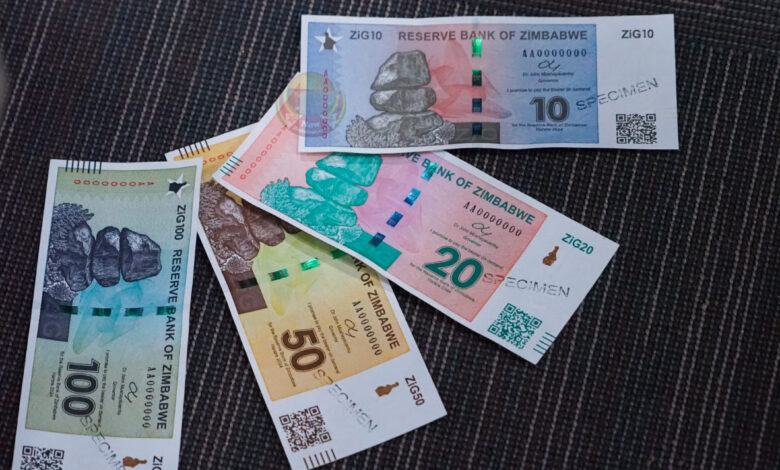Civil servants receive ZiG salaries, but concerns linger

While some civil servants have begun receiving their first salaries in the new ZiG currency, others remain apprehensive about its market performance and value stability.
Civil servant salaries were paid mid-month, with Finance Minister Mthuli Ncube assuring that ZiG is operational and salaries will be paid on time.
Professor Ncube explained that electronic ZiG payments will be deposited into accounts on scheduled paydays, or even at other times.
However, interviews with CITE revealed reservations among several civil servants.
“Firstly, hard cash in ZiG will not be available until the end of April, that is what the Reserve Bank of Zimbabwe said, now what kind of currency is that when it is unveiled, you are told there is no hard cash? questioned a teacher who identified himself as Witness Moyo.
Moyo said he had no expectation for market improvement because there was a new currency.
“I’m seeing no difference from bearer cheques and bond notes. The only difference is the name,” he curtly said.
Moyo predicted that the ZiG currency will also end up depreciating like the previous ZWL currency.
“We’ll just see it depreciating day in and day out. Already some outlets that belong to well-known individuals are using a rate of US1 to ZiG18 yet they tell people they are using the bank rate. This is the same way that happened to its predecessor ZWL notes. Another bad omen, is why can’t ZiG purchase fuel?”
A nurse who recently received ZiG3 400 stated that deductions for her Nyaradzo funeral policy and bank loan were not made.
“I’m worried I missed these payments,” she complained.
Emmanuel Sibanda said citizens would suffer because “businesses don’t want ZiG.”
“Our lives will be controlled by the government as we will now have to buy at government friendly shops that accept the ZiG. We will not be in control of our expenditure because the value of the ZiG is determined by external factors that can ultimately lead to hyperinflation,” he said.
Sibanda said it would be surprising if supermarkets or service providers were able to maintain the ZiG’s pegged rate of US1 to ZiG13.
“The usual story is there is the government rate and business rate,” he said.
Meanwhile, the finance minister said the ministry will build a mechanism in anticipation of external shocks since the ZiG currency is backed by hard assets such as gold.
“What is happening is that our exchange rate is being driven, not just by the price of hard assets like gold but also, we take into account what we call effective exchange rate which is the inflation differentials between our country and other countries,” Prof Nube said.
“That inflation differential is also known as the purchasing power parity. What happens is that when there is a shock, those shocks usually show up in inflation shocks. So, by taking into account those inflation differentials, we are able to take into account part of the shocks.”






